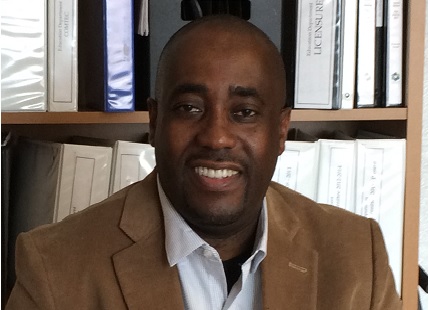Education
Welcome to the Education Department at Framingham State University! We take great pride in our history as the first public institution in the United States to prepare school educators and the excellent reputation our educator preparation programs have today. Our highly regarded and diverse faculty are exemplary educators, caring practitioners, and dedicated scholars and researchers. They will prepare and inspire you for this remarkable and rewarding profession that you have chosen.
Our Mission:
The Department of Education’s programs are designed to prepare knowledgeable and skillful professionals who are committed to social justice and service to learners of all ages, families, and communities. We provide an integrated program of course work and field experiences that support students in making meaningful connections between theory and praxis. Our students use reflection, creativity, criticality, and research-based practices in the pursuit of academic excellence for the common good. As the first publicly funded teacher preparation program in the United States, we remain steadfast in the belief that innovative and responsive public education and service are vital to a socially just world.
We offer undergraduate, post-baccalaureate and graduate education programs leading to Initial and Professional educator licensure in Massachusetts. Approved for licensure by the Commonwealth of Massachusetts Department of Elementary and Secondary Education (DESE), our education program is ranked at the highest national level by the U.S. Department of Education (Title II first quartile). We also offer the major in Child and Family Studies, designed for students interested in working with young children and their families as teachers or administrators in pre-school, childcare, early intervention or other community-based programs.
Our university has many resources to help prepare you. The Field Placement Office will help you set up your pre-practicum and practicum experiences in the field. The Centers for Early Childhood Education provide a teaching laboratory for students interested in teaching young children. The Chris Walsh Center offers opportunities for you to engage in internships and service learning experiences with local families and educators. CASA offers general tutoring and writing support. Framingham State’s membership in the Kappa Delta Pi honor society in education provides initiates with scholarship, career, and networking opportunities.
We are an institution where individuals of differing cultures, perspectives, and experiences are welcomed, respected, valued, and supported. At a time when the cost of education has become prohibitive for many families, Framingham State University has proudly maintained both quality and affordability. We look forward to welcoming you into our community of learners.
To train and develop human minds and character is the most inspiring work in the world."
Ellen Hyde, Class of 1862
Framingham Normal School Principal, 1875-1898
Spotlight on Education

Associate Professor
Dr. Powell is lead author, along with Dr. Kelly Matthews, on a $1.7 million AmeriCorps grant to establish the Framingham Teacher Residency. He was also selected in Fall 2022 as Interim Chief Diversity and Inclusion Office (CDIO), providing leadership in advancing FSU's commitment to inclusion, equity, anti-racism, and diversity across the institution at the student, faculty, and staff levels. Click here for more information on the Framingham Teacher Residency Program

Transfer Student, Elementary Education Major
I chose Framingham State University because of its highly rated education program. I’ve had a passion for this field for a long time and I think my learning style will be a great fit for the program.

Lead Residential Child Care Worker, Framingham Center for the Deaf
Recipient of the Education Department's 2021 Child and Family Studies Award
Since graduating Framingham State I’ve been working at The Learning Center for the Deaf (TLC), where I started as an intern my senior year. I’ve worked in a few different departments and now work as a Lead Residential Child Care worker at the Walden School at TLC. I'm thankful for the connections I made at FSU that helped lead to my career!
Our Programs
-
Majors
-
Minors
Secondary Education Minors:
-
Graduate Programs
- [NEW] PBTL/M.Ed. - Concentration in Early Childhood Education (Initial Licensure)
- Post-Baccalaureate Teaching Licensure (PBTL)
- M.Ed. - Concentration in Art
- M.Ed. - Concentration in Early Childhood Education (Professional)
- M.Ed. - Concentration in Education Technology
- M.Ed. - Concentration in Elementary Education (Professional)
- M.Ed. - Concentration in Literacy and Language
- M.Ed. - Concentration in Mathematics
- M.Ed. Concentration in Science, Technology, Engineering, and Math (STEM)
- M.Ed. - Concentration in Secondary Education
- M.Ed. - Concentration in Special Education
- M.Ed. - Concentration in Teaching English as a Second Language (TESL)
- See more: Graduate Studies
Contact Information
O’Connor Hall 126
508-626-4569
508-626-4734 - fax
teachereducation@framingham.edu
